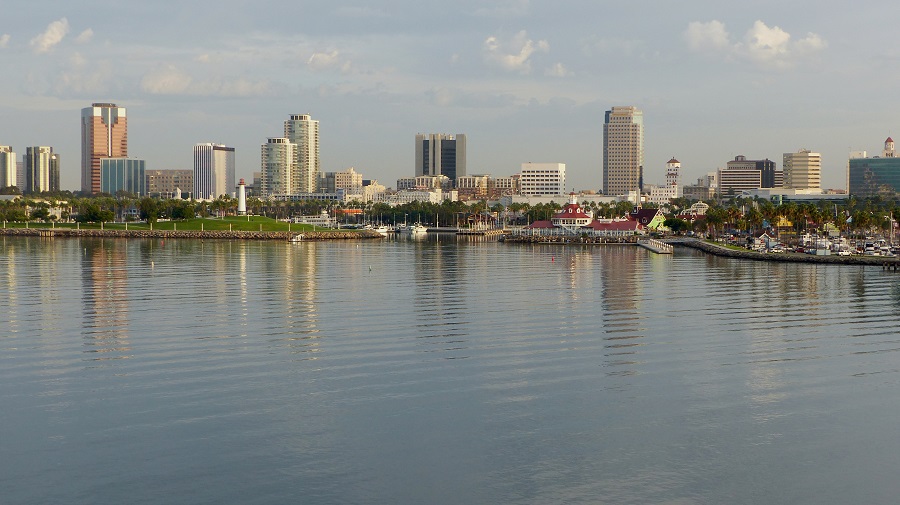With a unanimous vote, the Long Beach City Council acted to introduce a ballot measure on the June primary ballot that will allow the residents of Long Beach to decide if an increase of the transaction and use tax (TUT) over the course of a decade is a viable solution for the city’s infrastructure woes.
The vote will send a potential one percent TUT increase to the voters for approval on the June 7 statewide primary ballot. If approved by a majority of the voters, the tax would increase sales tax in the city by one percent for six years, drop to on half of one cent for four years before it sunsets after year 10. The city’s current sales tax is nine percent; if passed, the rate will rise to 10 percent and then drop to 9.5 percent for the last four years of the tax.
Mayor Robert Garcia said the vote was in no way an endorsement of the tax, but just a step in the process of allowing the voters to have their voices heard at the ballot box. The city is currently suffering from a budget shortfall in terms of infrastructure needs to the tune of about $150 million in annual deficits. The proposed TUT is projected to generate an additional $48 million annually that could help the city fix its failing streets and address shortages in police and fire services.
RELATED
Report Shows Long Beach Streets in Disrepair, Requiring Hundreds of Millions in Improvements
Despite garnering the support of all members present, the item wasn’t immune to some members of the council voicing the same concerns of transparency that some members of the public injected into the debate.
During last Tuesday’s meeting, Fifth District Councilwoman Stacy Mungo sought to address that issue by adding a layer of transparency to how the potential revenues would be spent by introducing a citizen oversight commission of residents appointed by Mayor Robert Garcia and confirmed by the council.
Last night, Fourth District Councilman Daryl Supernaw strengthened that item with a proposal that included more binding language that outlined procedures city staff and the oversight committee would undertake to ensure that the public would be aware of where money was going and be provided proof that it actually went to where it was allocated.
Before introducing the new wording for the oversight committee, Supernaw provided anecdotal proof that his district, the only one that lacks a fire station and has seen its West Side go over a decade since any of its streets, save one, had been repaved. However, he did acknowledge the cynical atmosphere around government trust, which prompted his additions.
The “new sheriff in town” approach is something that Supernaw hopes will be extended to future councils and mayors as this tax measure, if approved, may outlast some of those currently serving on the council.
“Although the action by this council and mayor cannot bind these actions of future councils or mayors in regards to the expenditures of the proposed sales tax increase,” Supernaw said. “This council can state very clearly the intent of this action and expect that the public should hold accountable all future legislators in regard to expenditures associated with these proposed sales tax increased revenue.”
The oversight committee is a critical component of the tax proposal, because it allows for the funds to be directed to infrastructure and public safety needs as advertised by the city’s elected officials. However, because the language of the tax doesn’t explicitly state that the funds must be spent in a certain area, the vote is subject to a lower threshold of approval.
According to Proposition 218—a 1996 amendment to the state’s constitution known as the “Right to Vote on Taxes Act”—a “special tax,” one that has its revenues earmarked for a specific cause must be approved by two-thirds of the voters. A general tax, one that lacks a specific designation for its revenue needs only a majority vote to pass.
Polling released by the city alongside its announcement earlier this month that it would take up the issue of the ballot initiative showed that 66 percent of people polled believed that the city needed additional revenue for city services, but an average of 63 percent supported the idea of raising the sales tax by one percent.
RELATED
Measure I Fails
Tom Stout, co-founder of the Long Beach Taxpayer Association took note of this, stating that the city must’ve learned something from its failed attempt to pass Measure I in 2008—Measure I would’ve increased parcel taxes by $120 per year for 35 years to create added revenue for the city to address infrastructure needs. It failed to get the necessary two-thirds vote.
“You can fool a lot of the people but not 66 percent of them,” Stout said. “So now you’re down to 50.1 and there are a lot of people who can be fooled at that.”
There are just over 249,000 registered voters in the city but the last time a primary vote was held in the city the voter turnout was less than 20 percent. If those numbers hold true the ballot measure would need roughly 25,000 votes to be passed by the city’s electorate.

